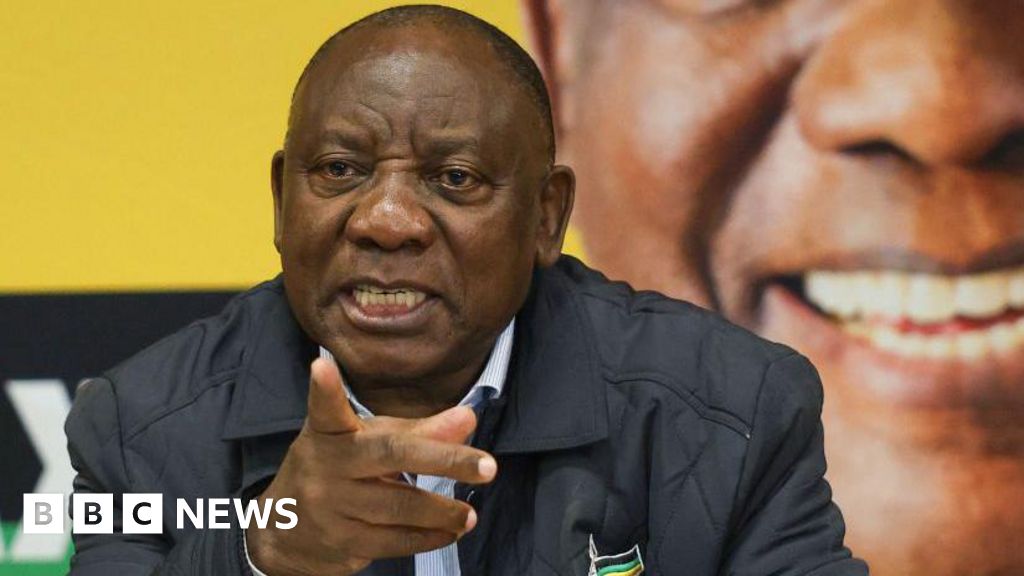President Cyril Ramaphosa, leader of South Africa’s African National Congress (ANC), said the party would invite other parties to form a national unity government.
This follows last week’s election in which the ANC lost its majority for the first time since the end of apartheid 30 years ago.
Ramaphosa said the ANC acknowledged people’s complaints and called for a national dialogue to help rebuild social cohesion.
The political parties have just over a week to form a government before parliament convenes to elect the country’s president.
According to South Africa’s proportional representation system, in order for the government to obtain a guaranteed majority, it needs to be composed of parties that collectively receive more than 50% of the vote.
The ANC received 40% of the vote, the centre-right Democratic Alliance (DA) 22%, former President Jacob Zuma’s MK party 15% and the radical Economic Freedom Fighters (EFF) 9 %.
Mr Ramaphosa was speaking after a marathon meeting of the African National Congress’s National Executive Committee (NEC) in Johannesburg on Thursday evening.
“We agreed to invite all political parties to form a government of national unity, which is the best option to move our country forward,” Ramaphosa said.
“In establishing a government of national unity, we will draw on experiences familiar to South Africans that have served our country well at a time of great difficulty.”
He was referring to the formation of South Africa’s first democratic government in 1994, which was headed by the ANC’s Nelson Mandela as president, in partnership with his former enemy the National Party, which implemented apartheid policies.
It also includes the Inkatha Freedom Party, a Zulu-based conservative party whose supporters regularly clash with ANC activists, resulting in thousands of deaths.
The ANC faces a difficult task as the next three largest parties represent vastly different ideologies and economic projects.
But Ramaphosa said the disagreement would not “preclude cooperation with either party as long as it is in the public interest” and was consistent with a set of basic principles, including respect for the constitution and the rule of law.
Analysts say such a broad approach could allow the ANC to avoid choosing a coalition partner that might be unpopular with its base voters, or at least appease some members before trying to form a narrower coalition after national unity talks fail.
It has held “constructive discussions” with the DA, EFF and three smaller parties.
Zuma’s MK party refused to accept the election results or join a coalition government as long as Ramaphosa remained president.
But it issued a statement late on Thursday saying it had made initial contact with the ANC and would hold a meeting soon.
Ramaphosa said the ANC has appointed a five-member working group to engage with all political parties that have expressed a willingness to promote the interests of the South African people.

